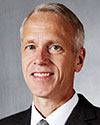- Membership & Community
-
Publications & News
- Physiology Journals
-
Newsroom
-
The Physiologist Magazine
- 2019
- 2020
- 2021
- 2022
- 2023
- 2024
-
In Depth
- In Depth—The Bear Necessities
- In Depth: Understanding Circadian Rhythms
- In Depth: Understanding Data
- In Depth: Exercise Physiology: Take Your Medicine at the Gym
- In Depth: Neurodegenerative Disorders
- Imaging Methods Unveil the Invisible
- Rewiring the Brain: Breakthroughs in Neural Therapy
- What’s Coming Next for GLP-1 and Metabolic Disease Treatment
- Understanding the Effects of Maternal Exercise
- How Muscles May Hold Cues to Better Sleep
- The Science Behind Breathwork and Mental Health
- How Science is Reframing Aging and Disease
-
Mentoring Forum
- Net Worth
- Take Care
- You … In Charge
- Work. It. Out.
- Working Off-site
- Location, Location, Location?
- Student Support
- Progressing to Postdoc
- Relationship Building
- Let’s Get It Started
- What Do We Value?
- It’s a Postdoc Life
- Coronavirus Contributions
- Creative Communications
- Selection Process
- Conference Connections
- Postdoc Appreciation
- Research Rewards
- Focus on Teaching
- Industry Insights
- Balance Beam
- Post Postdoc
- If You Build It
- Talk It Through
- Forward Bound
- I’ve Earned My PhD. Now What?
- University Life
- Tips for Trainees
- Time Travel
- Prepare Now for the Career You Want
- Landing a Postdoctoral Researcher Position
- Becoming a Physician-Scientist
- Mastering the Art of Science Communication
- Setting Yourself Up for Success in the Lab
- From Postdoc to Professor: Key Strategies for Success
- How to Stay Motivated in Challenging Times
- Staying Motivated Throughout Your Science Career
- Managing Stress and Workload During Your PhD
- Stay Passionate About Your Physiology Career
- Advice for Science Trainees in Uncertain Times
-
Policy IQ
- Policy IQ—2023 in Review: How APS Advocated on Behalf of Physiologists
- Policy IQ—Supporting Equitable Research
- NIH's Road Map to a Better Postdoc Experience
- The Career Path to Science Advocacy
- Culture of Safety: Stopping Sexual Misconduct
- Physiologists Return to Capitol Hill
- Tips for Scientists to Communicate about Animal Research
- Science Advocacy in a New Political Landscape
- Tips for Making the Call to Congress
- Science Spending Is an Investment
- Advocacy Up Close and Personal
- How Animal Research Advances Physiology and Medicine
- 5 Ways Physiologists Advocated for Science in a Challenging Year
-
Publish with Polish
- Publish with Polish
- The Layers of Open Science
- Take Your Content From Meeting to Manuscript
- APS Journals to Highlight Women’s Health Research
- What Subscribe to Open Means for APS Members
- The 5 Pillars of Publish with Purpose
- 3 Types of Metadata Researchers Should Know About
- Navigating Open Access and New Licensing Options
- Journal Manuscript Prep Made Easy
- How to Navigate Public Access Requirements
- Ensuring Public Trust in Publishing
- Improve Your Scientific Figures With APS and BioRender
- How APS Subscribe to Open Supports Accessible Research
-
Under the Microscope
- Equine Inspiration
- Inquiring Minds
- The Power of Teaching
- The Love of Physiology
- Understanding Women's Physiology Across the Lifespan
- Studying Human Health in Extreme Environments
- Advancing Kidney Health and Physiology Research
- How Gut Microbes Shape Blood Pressure and Drug Response
- Battling Malaria
- Exploring the Microbiome
- From Physics to Physiology: A Scientist's Unconventional Journey
- Finding Meaning in Exercise Physiology and Healthy Aging
- Mentoring Q&A
- Evolution
- Baseline by Scott Steen, CAE, FASAE
- 2025
- 2026
- Find Us on Social Media
-
The Physiologist Magazine
-
Professional Development
-
Meetings & Events
-
American Physiology Summit
- #APS2024 Overview
- Abstracts
- Awards at the Summit
- Award Lectures
- Career Networking Lunch Form
- Dates and Deadlines
- Advocate for Health Research Funding
- Hotel Information
- International Travel Information for Summit Attendees
- Industry Partners
- Mobile App
- NIH and NSF Program Officer Panel Discussion Form
- Physical Poster Information
- American Physiology Summit PhysioHub
- Pre-Summit Events
- Registration
- Section & Group Banquet Tickets
- Social Events
- Speaker Audiovisual Instructions
- Summit FAQs
- Travel & Transportation
- Undergraduate Program Book
- Liability Waiver
- Industry Partners
- Joseph Erlanger: Pioneering Nerve Research and APS Leadership
- 2023
- 2024
- Scientific Integrity Policy
- Exhibitor Registration Form
- Keynote Speaker Tracy L. Bale, PhD
- Keynote Speaker Jennifer Lippincott-Schwartz, PhD
- Career Day Workshop: Own Your Path, Positioning for the Career That Fits You
- From Concept to Classroom
- New Trends in Sex Differences and Women’s Health Research
- Control of Renal Function in Health and Disease
- Comparative Physiology Conference
- Webinars
- Future APS Conferences
- Conference Policies
-
American Physiology Summit
- APS Awards
-
Career & Professional Development
-
Career Gateway
-
Resources
- Transcript—Leading Through Conflict and Difficult Conversations
- Transcript—Managing Conflict with Colleagues
- Transcript—Leading a Team Through Conflict
- Transcript—Providing Difficult Feedback
- Transcript—Team Dynamics and Culture Primer
- Transcript—Building a Team
- Transcript—Leading a Team Assigned to You
- Transcript—Creating a Team Culture
-
Resources
- Career Navigator
- Center for Physiology Education
- Virtual Courses
- Physiology Job Board
- APS Graduate Physiology & Biomedical Science Catalog
-
Career Gateway
-
Meetings & Events
-
Advocacy & Resources
- Science Policy
-
Resources
- Researcher Resources
- Educator Resources
- Trainee Resources
- Student Resources
-
APS Graduate Physiology & Biomedical Science Catalog
- Des Moines University
- George Washington University
- Michigan State University
- New York Medical College
- Nova Southeastern University
- Pennsylvania State University
- Texas A&M University
- Texas A&M University Medical Physiology
- University of Alabama at Birmingham
- University at Buffalo
- University of Colorado
- University of Michigan
- University of Minnesota
- University of Missouri-Pathobiology and Integrative Biomedical Sciences
- University of Nebraska Medical Center
- University of Nevada, Reno
- University of South Carolina School of Medicine
- University of Tennessee Health Science Center (UTHSC)
- University of Texas Health Science Center
- Virginia Commonwealth University
- Wayne State University
- Physiology Department Catalog Submission Form
- Boston University
- Career Gateway
- Major Initiatives
- About APS
Conference program includes game-changer sessions featuring top scientific topics
Rockville, Md. (March 15, 2024)—Nobel Laureate Brian Kobilka, MD, and NASA Astronaut Jessica Meir, PhD, are among the highlighted speakers who will attend the American Physiology Summit, the American Physiological Society’s (APS) flagship annual meeting. The Summit will be held April 4–7, 2024, in Long Beach, California.
 Nobel Laureate Brian Kobilka, MD, is a professor and chair of molecular and cellular physiology at Stanford University School of Medicine in Palo Alto, California. Together with his colleague Robert Lefkowitz, MD, Kobilka won the 2012 Nobel Prize in Chemistry for their work on G-protein-coupled receptors. Kobilka will give the Summit’s opening keynote talk, “Challenges and new approaches to drug discovery for G protein coupled receptors,” on Thursday, April 4, at 4:15 p.m. PDT. Read more about Kobilka.
Nobel Laureate Brian Kobilka, MD, is a professor and chair of molecular and cellular physiology at Stanford University School of Medicine in Palo Alto, California. Together with his colleague Robert Lefkowitz, MD, Kobilka won the 2012 Nobel Prize in Chemistry for their work on G-protein-coupled receptors. Kobilka will give the Summit’s opening keynote talk, “Challenges and new approaches to drug discovery for G protein coupled receptors,” on Thursday, April 4, at 4:15 p.m. PDT. Read more about Kobilka.
 NASA Astronaut Jessica Meir, PhD, assistant to the chief astronaut for Commercial Crew (SpaceX) and deputy for the Flight Integration Division, trained as a comparative physiologist before becoming an astronaut. From 2019 to 2020, she spent 205 days living and conducting scientific experiments on the International Space Station. Meir will give the closing keynote talk, “Experimenting in microgravity: full circle for a physiologist turned astronaut,” on Sunday, April 7, at 11:30 a.m. PDT. Read more about Meir.
NASA Astronaut Jessica Meir, PhD, assistant to the chief astronaut for Commercial Crew (SpaceX) and deputy for the Flight Integration Division, trained as a comparative physiologist before becoming an astronaut. From 2019 to 2020, she spent 205 days living and conducting scientific experiments on the International Space Station. Meir will give the closing keynote talk, “Experimenting in microgravity: full circle for a physiologist turned astronaut,” on Sunday, April 7, at 11:30 a.m. PDT. Read more about Meir.
The meeting’s lineup will also feature eight game-changer sessions highlighting some of the biggest topics affecting life and health today. Top scientists from around the world will discuss these vital issues.
The game-changer sessions are:
The Molecular Circadian Clock: Understanding Its Role in Homeostasis
Cutting-edge advances in understanding molecular circadian clocks and how circadian rhythm function is integrated across physiological systems to maintain homeostasis
AI Unbound: Challenging Scientific Boundaries in Physiology Research and Data Science
How advances in technology, artificial intelligence, machine learning and deep learning are pushing boundaries in science and health care
G Protein-coupled Receptors as Drug Targets: Novel Insights and New Approaches
G protein-coupled receptor (GPCR) application as drug targets and approaches in identifying GPCR-regulating proteins in the cardiovascular system
Harnessing the Power of Spatial Omics: Innovative Approaches and Insights into Cell Function
Novel insights into cell function in systems biology and how cells organize and interact across the tissue landscape to drive disease progression
Interorgan Crosstalk: Exploring Communication Axes and Their Relevance in Health and Disease
New epidemiological and pre-clinical evidence that highlights the relevance of interorgan crosstalk in homeostasis and disease
Cognitive Decline: Collateral Damage of Cardiometabolic Syndrome
New findings that could prompt preventive and counteractive remedies for the loss of cognitive function in people with obesity and metabolic syndrome
Immunometabolism: At the Crossroads of Novel Gut-Neural-Cardiorenal Pathophysiological Mechanisms of Disease
An exploration of basic applied and clinical science in diverse animal and human models, including underrepresented populations, and an introduction to immunology from an integrative physiological perspective
Physiology in Nontraditional Model Systems: Exploring Species Diversity to Reveal Adaptations with Translational Potential
The study of nontraditional models for mechanisms of unique adaptations that can enhance understanding of how other species respond to internal and external physiological challenges
Explore the Summit’s schedule at a glance and program by day.
NOTE TO JOURNALISTS: For more information, please contact APS Media Relations or call 301.634.7314. Find research highlights in the APS Newsroom.
Physiology is a broad area of scientific inquiry that focuses on how molecules, cells, tissues and organs function in health and disease. The American Physiological Society connects a global, multidisciplinary community of more than 10,000 biomedical scientists and educators as part of its mission to advance scientific discovery, understand life and improve health. The Society drives collaboration and spotlights scientific discoveries through its 16 scholarly journals and programming that support researchers and educators in their work.
Related Content
- THC Exposure before Birth May Impair Infant Lung Development and Function
- The Latest Scientific Research on Sex Differences in Nutrition
- Erlanger Family Gifts Renowned Physiologist’s Nobel Medal to APS
- How Does She Run So Fast? Examining the Muscle Composition of a 91-Year-Old World Record Sprinter
- Heat Really Does Feel Hotter After a Cold Season
- The Physiologist Magazine
- Find Us on Social Media
 Media Inquiries
Media Inquiries
Contact the Communications Department to:
- Interview a scientific expert.
- Request a study or journal article.
- Get background and resources on physiology.
Email communications@physiology.org or call 301.634.7314.

